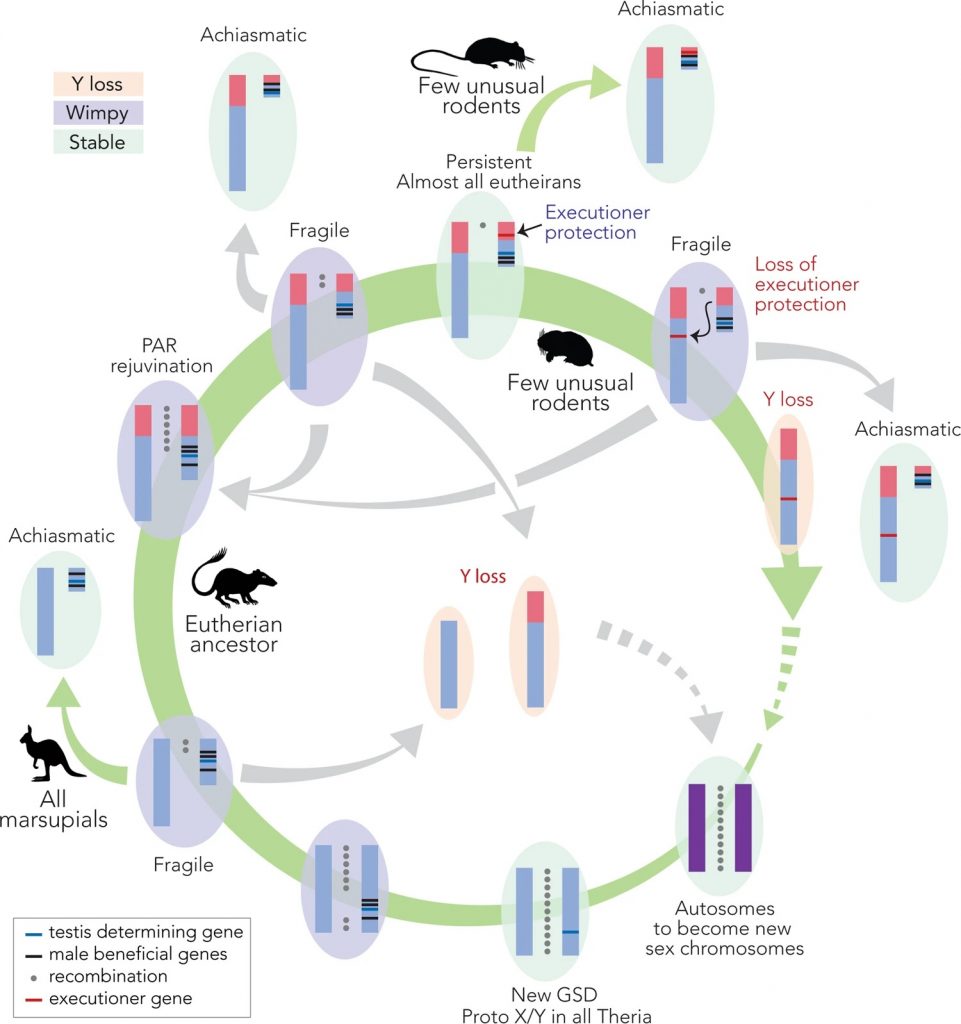Ruiz-Herrera, A., Waters, P.D. Fragile, unfaithful and persistent Ys—on how meiosis can shape sex chromosome evolution. Heredity (2022).
https://doi.org/10.1038/s41437-022-00532-2
Abstract

Sex-linked inheritance is a stark exception to Mendel’s Laws of Heredity. Here we discuss how the evolution of heteromorphic sex chromosomes (mainly the Y) has been shaped by the intricacies of the meiotic programme. We propose that persistence of Y chromosomes in distantly related mammalian phylogroups can be explained in the context of pseudoautosomal region (PAR) size, meiotic pairing strategies, and the presence of Y-borne executioner genes that regulate meiotic sex chromosome inactivation. We hypothesise that variation in PAR size can be an important driver for the evolution of recombination frequencies genome wide, imposing constraints on Y fate. If small PAR size compromises XY segregation during male meiosis, the stress of producing aneuploid gametes could drive function away from the Y (i.e., a fragile Y). The Y chromosome can avoid fragility either by acquiring an achiasmatic meiotic XY pairing strategy to reduce aneuploid gamete production, or gain meiotic executioner protection (a persistent Y). Persistent Ys will then be under strong pressure to maintain high recombination rates in the PAR (and subsequently genome wide), as improper segregation has fatal consequences for germ cells. In the event that executioner protection is lost, the Y chromosome can be maintained in the population by either PAR rejuvenation (extension by addition of autosome material) or gaining achiasmatic meiotic pairing, the alternative is Y loss. Under this dynamic cyclic evolutionary scenario, understanding the meiotic programme in vertebrate and invertebrate species will be crucial to further understand the plasticity of the rise and fall of heteromorphic sex chromosomes.
